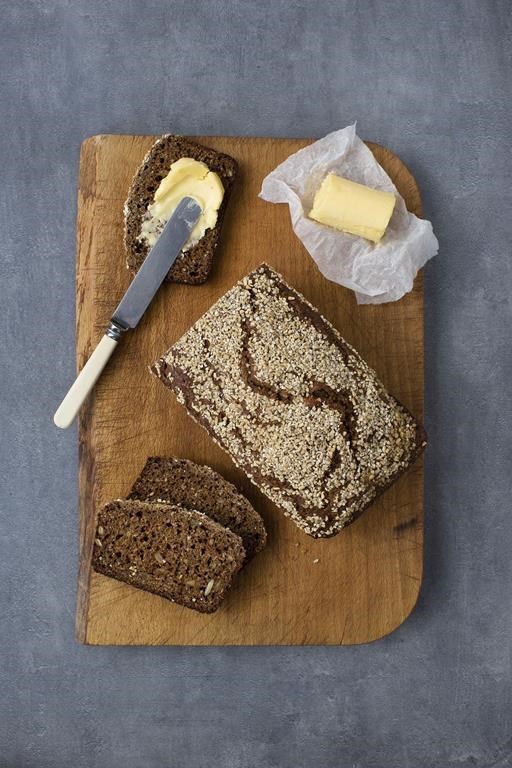It may come as a surprise that one of Ireland’s most renowned chefs opened a Spanish tapas place for his first restaurant in Galway. That was 2008, though, a time when Jp McMahon saw — and felt — a lack of confidence in Irish cuisine.
“We had kind of a sense of looking outward,” McMahon said. “We’ve always had good products but haven’t always been able to graft them into a cuisine per se in the way Spanish or Italians did.”
His mind began to change while working with local producers who had doubled down on their roots, and he started investigating Irish food and its history.
The research led him to open Aniar, a contemporary restaurant that combines traditional cooking and preservation methods, such as curing, pickling, smoking and fermenting, with fresh local ingredients, in innovative ways. Aniar earned a Michelin star in 2013.
The restaurant helped to dispel the misconception that Irish food is only stews, meat pies and potatoes.
“Certainly, there’s great shellfish, oysters, beef and lamb and dairy,” said McMahon, whose “The Irish Cookbook” falls somewhere between a collection of recipes and a hefty culinary history. “It turns out serving shellfish with pickles or ferments is just as much Irish food as beef and Guinness pie is.”
Local seaweed, for instance, was used historically as a vegetable and a seasoning, much like in Japan. And seafood in general has taken a bigger piece of center stage in recent years.
When Imen McDonnell moved to Ireland from Minneapolis to be with her now-husband in 2005, she says she was amazed at how little seafood was being eaten by locals. Because observant Catholics had to eat fish on Fridays and during Lent, people were either sick of seafood or felt like it was poor people’s food, she said.
“Eventually, people started looking around seeing we have everything we need right here,” said McDonnell, author of “The Farmette Cookbook: Recipes and Adventures from My Life on an Irish Farm.”
“The nicest food here is things simply prepared fresh off the land,” she said.
Her creamy seafood chowder is a typical Irish dish that breaks the meat-and-potatoes stereotype, although it does include a potato, which locals unabashedly continue to love. Try the simplified version below, paired with McMahon’s stout and treacle soda bread that he serves in Aniar.
CREAMY SEAFOOD CHOWDER
From “The Farmette Cookbook” by Imen McDonnell
Time: 50 minutes
Serves 6
1 lb/500 g mussels, in the shell
1 cup/240 ml white wine
1 russet potato, peeled and chopped into 1/2-inch cubes
1 carrot, chopped
2 stalks celery, chopped
1 medium onion, chopped
4 tablespoons butter
Heaping 1/2 cup (50 g) all-purpose flour
2 cups/500 ml cream
2 cups/500 ml milk
1/2 cup/240 ml fish or vegetable stock
2 cups/400 g smoked salmon, cut into bite-size pieces
Wash and scrub the mussels, discarding any that are already open. In a large pot, bring the wine to a simmer, add the mussels and cook covered until they all pop open, about 3 to 5 minutes. Transfer to a bowl with the liquid. Melt 1 tablespoon of the butter over low heat, add 1 teaspoon salt and cook the vegetables until translucent, about 10 minutes.
In a small saucepan, stir together the remaining butter and flour over low to form a roux. In another saucepan, bring the cream, milk and stock to boiling. Whisk the roux into the cream mixture and bring back to a simmer, stirring continuously.
When the vegetables are cooked, add the fish, followed by the thickened cream and stock mixture and the cooked mussels. Bring the soup to a simmer for 5 minutes. Season to taste with salt and pepper.
TREACLE SODA BREAD
From “The Irish Cookbook” by Jp McMahon
Time: 20 minutes active, plus up to 1 hour 45 minutes baking
Makes 2 loaves
Neutral oil like canola, for greasing
800 g/5¾ cups whole-wheat bread flour, such as Bob’s Red Mill or King Arthur
200 g/1 1/2 cups white bread flour
1 tablespoon baking soda
4 teaspoons sea salt
1 1/2 cups mixed seeds, such as pumpkin or sunflower
²⁄³ cup treacle or molasses
2 eggs
850 ml/3 1/2 cups buttermilk
About 200 ml/1 cup stout such as Guinness
50 g/¹⁄³ cup) steel-cut oats, for the topping
Preheat the oven to 265°F. Grease two 9×5×3-inch loaf pans. In a large mixing bowl, stir all dry ingredients except the oats together. In a small bowl, mix the treacle (molasses), eggs and buttermilk, then add the mixture to the dry ingredients and combine. Mix in enough stout until you achieve a wet, pourable batter. Do not knead.
Pour the batter into the prepared pans, sprinkle the oats on top, and bake for 1 hour 30 minutes to 1 hour 45 minutes, until the loaves sound hollow when the bottoms are tapped or the core temperature is greater than 185°F on a meat thermometer.
EDITOR’S NOTE: Albert Stumm lives in Barcelona and writes about food, travel and wellness. Find his work at https://www.albertstumm.com
Albert Stumm, The Associated Press




